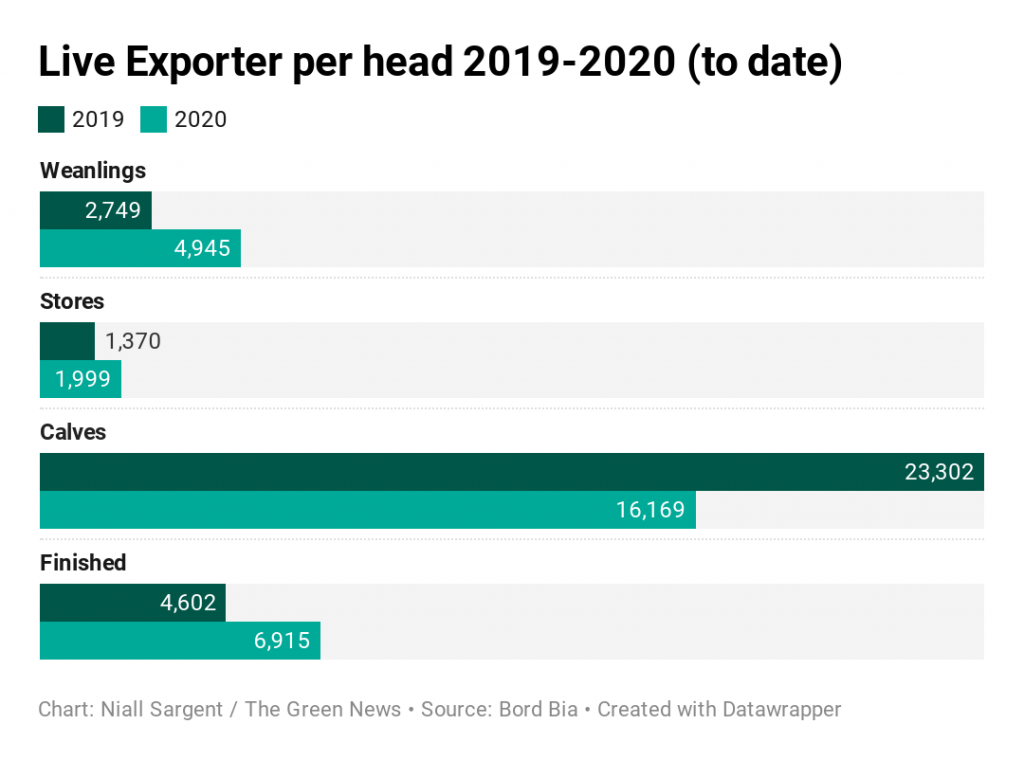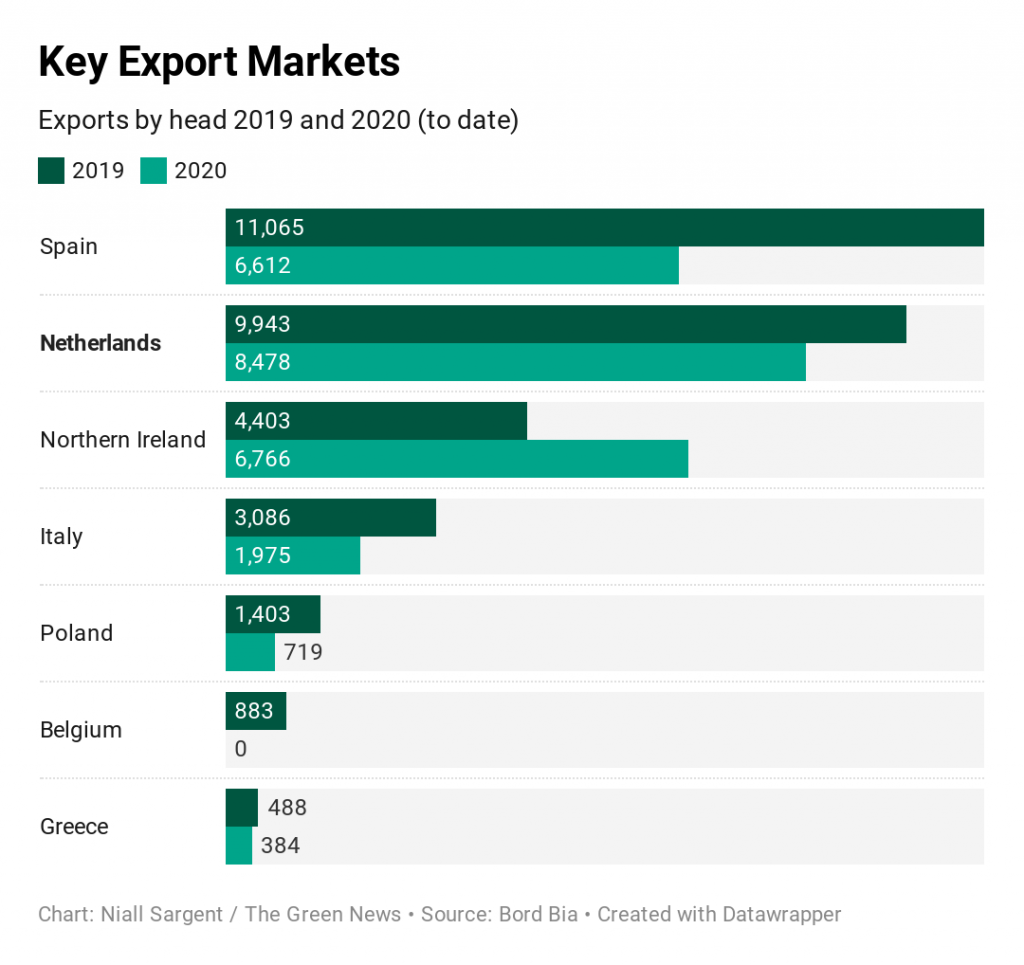Live exports ‘unlawful’, animal rights groups warn Minister

March 4th, 2020
European and Irish animal welfare groups have called on the Minister for Agriculture to halt the approval of live exports of young calves that they say are in breach of EU law.
In a joint letter sent to Michael Creed on Monday, Compassion in World Farming (CIWF), Ethical Farming Ireland and Eyes on Animals argue that the export of export of unweaned calves to continental Europe breaches EU Regulation 1/2005 on the protection of animals during transport.
The animal welfare groups previously highlighted breaches of the regulation and are now arguing for the first time that the trade should not be taking place at all as it entails “undue suffering” to the animals.
According to the three groups, calves may be on the truck for five hours before the ferry to France leaves Ireland. This includes loading time onto the truck, the journey to the port, and waiting at the port before the truck embarks on the ferry.
In addition, the groups write, calves can go unfed for up to three hours before loading onto the truck. The ferry journey to Cherbourg takes 18 hours, with another 90 minutes required to drive to the lairage near Cherbourg for unloading before all the calves are feed.

Stressful journeys
The letter argues that calves can go for 24 hours or more without feeding with milk replacer between the time they are loaded onto transport trucks at the start of the journey and their first feed at Cherbourg.
The groups argue that subjecting the unweaned calves to 24 hours without feed would fall under article three of the regulations that no person shall transport animals or cause animals to be transported in a way “likely to cause injury or undue suffering to them”.
The regulations provide that unweaned calves may only be transported for more than eight hours if, after nine hours of travel, they are given liquid and “if necessary fed”. “The above considerations make it clear that unweaned calves that are transported for around 24 hours without feed are likely to experience undue suffering,” the letter warns.
Speaking to The Green News, CIWF’s chief policy advisor Peter Stevenson said that the trade in live exports caused “undue suffering” to Irish calves.
“Ireland’s trade involves young calves going for 24 hours or more without feed which results in the animals being hungry, fatigued and vulnerable to disease. This trade is unlawful and inhumane and should be brought to a rapid end,” he added.
Additional EU regulations covering the welfare of farmed animals states that all calves “shall be fed at least twice a day”. The groups argue that transported calves would need even more feed as they use up more energy during transport than they would if kept in normal farm conditions.
“Young calves do not have a fully developed immune system. If feeding is stopped or significantly reduced, this has a considerable impact on the immune system of calves that are already under severe stress due to being transported,” the letter adds.
The transport is also “inherently stressful” and has additional impact on the immunity of the calves, the letter states, with the lack of feeding during transport compounding the stress and can “further compromise their immune system”.
In a statement, the Department of Agriculture said that Ireland operates in compliance with the regulations and that the Government sets higher standards relating to the approval of ships for livestock transport than those which apply generally in the EU.
“Ireland takes the welfare of animals very seriously. A considerable amount of resources are deployed to the process of certifying animals for intra-community trade and in ensuring compliance in respect of the welfare of the animals being transported,” the statement reads.
“The Department is regularly in contact with the Competent Authorities in other Member States… to ensure that the regulations are obeyed and the welfare of the animals is assured. We continue to monitor our procedures and adjust and develop as needed. “

Commission case
Compassion in World Farming has consistently made complaints to the Department of Agriculture the European Commission about Ireland’s failure to ensure compliance with EU laws since the late 1990s.
In June 2018, CIWF and several animal welfare organisations called on the European Commission to start infringement procedures against Ireland over conditions for calves exported to mainland Europe.
The groups told the Commission that Ireland is responsible for “systematically failing to enforce” EU regulations on the protection of animals during transport since as far back as 1999.
Over the past few years, several cases of live Irish cattle exports have documented breaches of EU animal welfare regulations in both the EU and Turkey. In March 2018, for example, Eyes on Animals recorded footage of a journey from Rosslare to a veal farm in The Netherlands in which the rest period was not respected.
The investigation also revealed that there were water access issues for the calves aboard the trucks as the drinking teats were not accessible for the calves. Some of the calves had dirty eyes, diarrhoea and sunken bellies, the group said.
[x_author title=”About the Author”]







